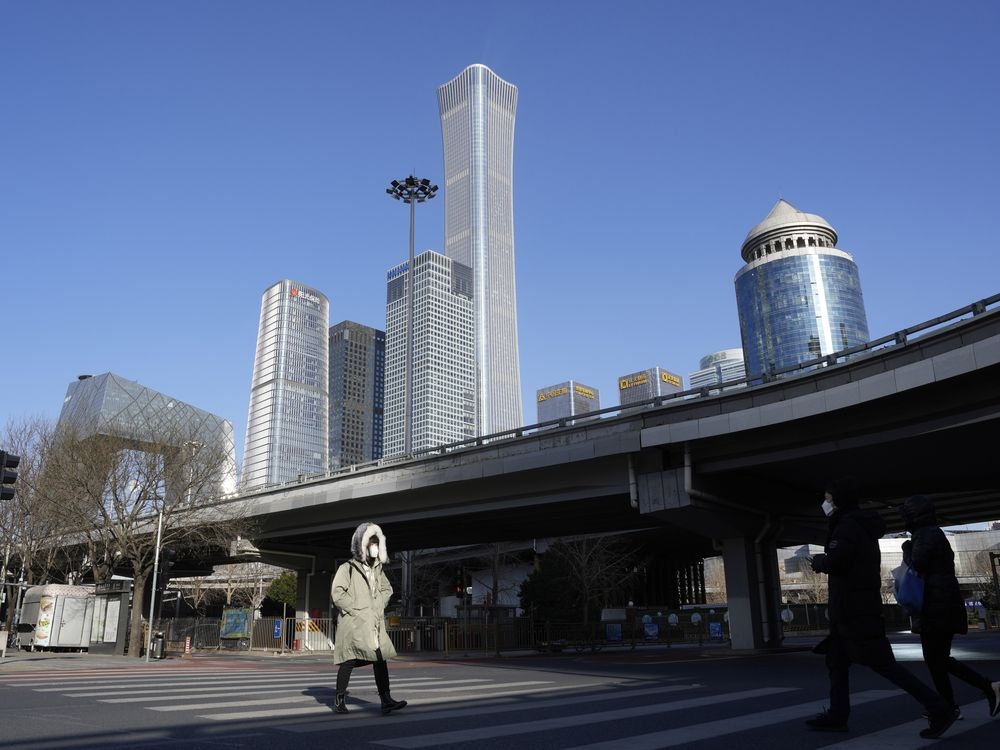
Article content
OTTAWA — A newly released document shows intelligence officials have been tracking China’s attempts to meddle in Canadian affairs for more than one-third of a century.
Advertisement 2
Article content
The February 1986 intelligence report warned that Beijing was using open political tactics and secret operations to influence and exploit the Chinese diaspora in Canada.
Article content
It said China was using new and potentially more potent techniques to accomplish these goals.
The Canadian Press used the Access to Information Act to obtain the report, called “China/Canada: Interference in the Chinese Canadian Community,” produced by the federal Intelligence Advisory Committee.
Much of the document remains secret on the grounds disclosure could harm the conduct of international affairs, the defence of Canada or the detection, prevention or suppression of subversive or hostile activities.
Release of the heavily redacted report comes amid pressure on the Liberal government to hold an inquiry into foreign interference in Canada following a series of leaks to the media about purported meddling by China.
Article content
Advertisement 3
Article content
RECOMMENDED VIDEO
The 1986 committee report “demonstrates that this issue has been on the radar of Canadian intelligence for decades,” said Alan Barnes, a former intelligence analyst who is now a senior fellow with Carleton University’s Norman Paterson School of International Affairs.
Barnes, who recently came across the title of the document during archival research, said the Intelligence Advisory Committee was chaired by the federal security and intelligence co-ordinator in the Privy Council Office.
“Its reports were sent to a wide range of senior officials across government,” Barnes said.
The 1986 report advised that the People’s Republic of China “has continued its efforts to influence the many large Chinese communities abroad and to exploit those communities for its economic and political purposes.”
Advertisement 4
Article content
“In Canada, as in many other western countries, the PRC uses both overt political activities and covert intelligence operations … to achieve those ends,” the report added. “New, and potentially more effective, techniques are being used to influence the Canadian Chinese communities.”
Cheuk Kwan, co-chair of the Toronto Association for Democracy in China, said he was not surprised by the report.
Kwan said he is aware of Chinese efforts to cultivate individuals and groups to interfere in Canadian affairs dating from the early 1980s, though the activity was at “a very low level” in those days.
“But certainly, they knew what they were trying to do. It was not an accident,” he said in an interview.
“I’m glad that at that time, somebody was aware of it. I’ll bet nobody took any action.”
Advertisement 5
Article content
Kwan said Beijing stepped up efforts to influence Chinese communities in Canada following the bloody 1989 crackdown on pro-democracy protesters in Tiananmen Square, with the aim of burnishing its badly damaged image.
Evidence has surfaced from time to time over the decades indicating interest on the part of Canadian intelligence officials in China’s behind-the-scenes actions.
In recent years, the federal government and its security agencies have begun to openly point a finger at Beijing as particularly active in foreign interference activities against Canada.
Representatives of the Chinese government have consistently denied meddling in Canadian affairs.
Leaks to the media from unnamed security sources about alleged Chinese attempts to interfere in the last two general elections have prompted calls for the federal Liberals to explain what Canada is doing in response.
Advertisement 6
Article content
Opposition parties continue to press the government to establish a full public inquiry.
Kwan said while an inquiry could help document the history of China’s interference ploys, it would essentially be “looking backwards” but not “going to help you going forward.”
The partial release of the intelligence report, 37 years after it was written, illustrates the need for Canada to adopt a proper system for the declassification of historic intelligence and security records after a specific period of time, Barnes said.
Canada is the only member of the Five Eyes intelligence alliance _ which also includes the United States, Britain, Australia and New Zealand — that does not have a declassification process for historic records, he noted.



Comments
Postmedia is committed to maintaining a lively but civil forum for discussion and encourage all readers to share their views on our articles. Comments may take up to an hour for moderation before appearing on the site. We ask you to keep your comments relevant and respectful. We have enabled email notifications—you will now receive an email if you receive a reply to your comment, there is an update to a comment thread you follow or if a user you follow comments. Visit our Community Guidelines for more information and details on how to adjust your email settings.
Join the Conversation